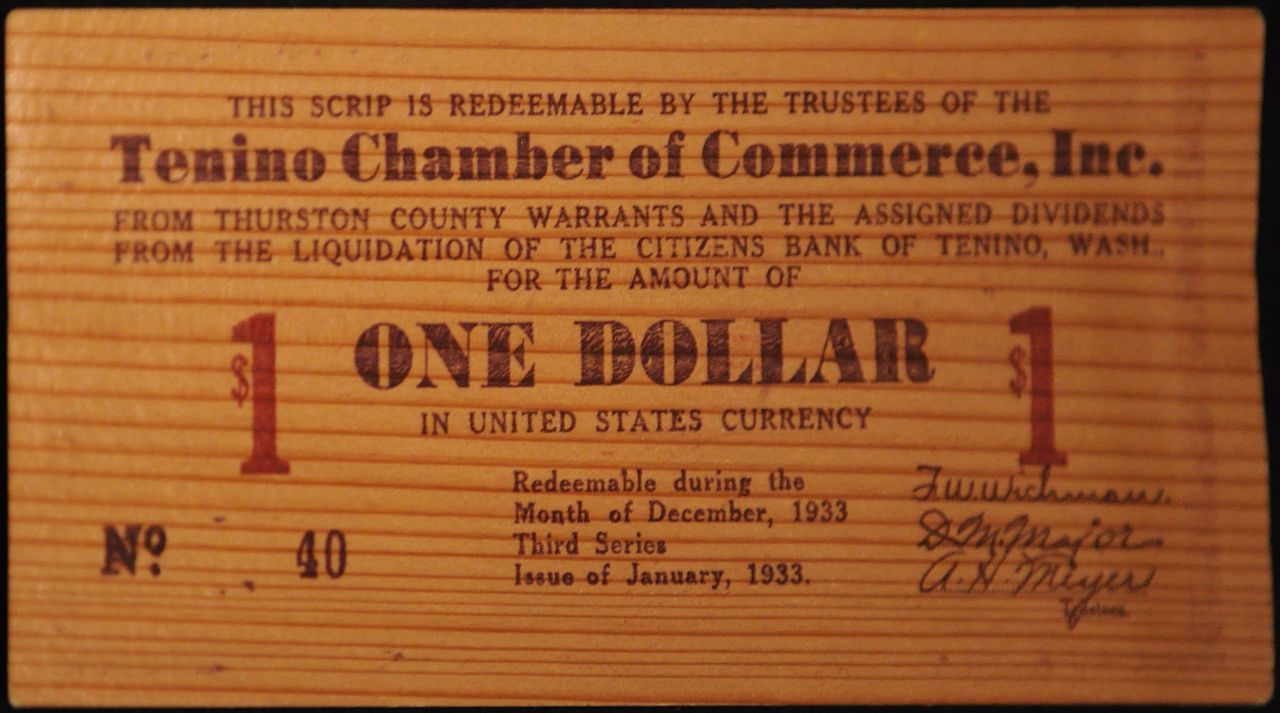It was around this time last year that digital currencies were reaching record high values.
This year, at least for now, not so much, but one alternative currency has been doing pretty well for itself lately.
That’s the wooden money made in Tenino, Washington.
Tenino is a community of about 1,800 people in western Washington state.
And its journey to becoming a hotspot for currency started in the 1930s.
Because of the Great Depression, the town’s bank ran out of money.
But rather than shut the bank down, the town decided to create its own money.
They printed bills on very thin cuts of wood, using a printing press that had been used to put out the local newspaper.
The wooden bills not only helped the town weather the Depression, they became calling cards for Tenino.
It became known as the town that printed wooden money.
In better economic times, people could have turned the wood bills in to get standard money, but most people kept them.
Over the years they became collector’s items.
The largest known collection of Tenino money is kept in a vault at the old Tenino bank building.
When the pandemic came to the area in 2020, local officials were looking for a way to help residents and local businesses.
They sent residents in need a limited amount of wooden money that could be used at pretty much any shop in town.
They used that same 19th century printing press to issue the new bills, which each featured a portrait of George Washington and a Latin phrase that roughly translates to “we’ve got this handled.”
If you feel like you’ve been to every museum and you’re not sure what to do next, try the German Food Additives Museum.
They’ve got all the extra stuff companies put in food: coloring, thickener, preservatives and artificial flavors.
It’s not so much celebrating these items as it is encouraging us to think about what’s in our food and why.
Is it fitting that the food additives museum is in Hamburg?
Why Tenino is still printing wooden money (KING 5)
There is a museum dedicated to food additives in Hamburg, Germany (Boing Boing)
For just $1 a month (regular bills or wooden money) you can help support this show on Patreon

